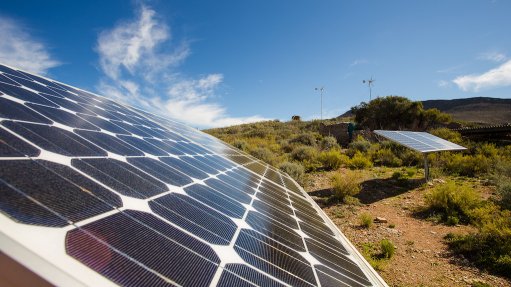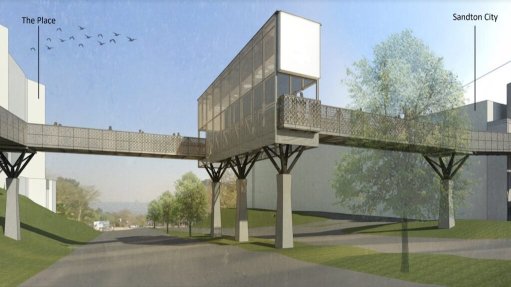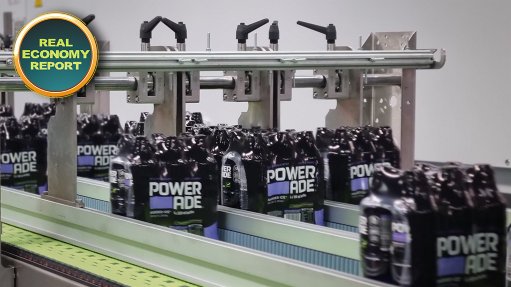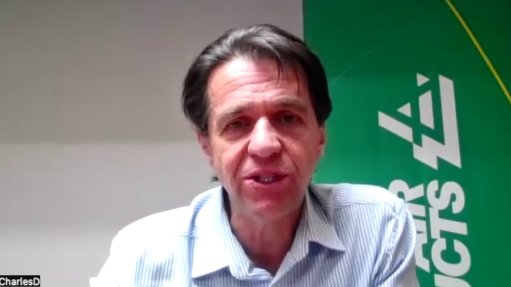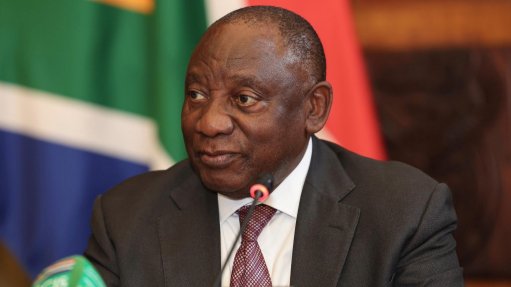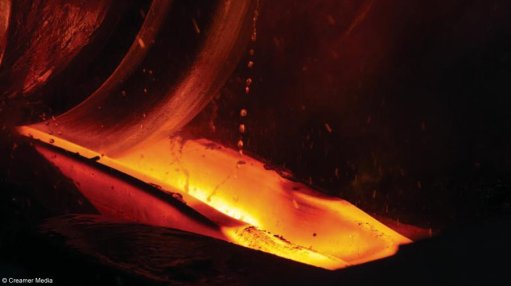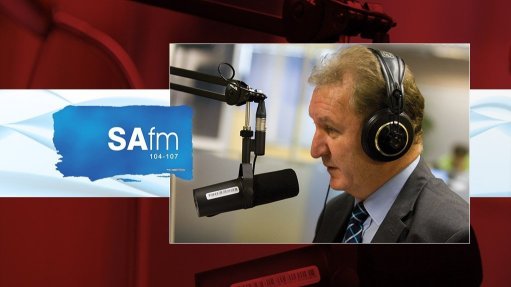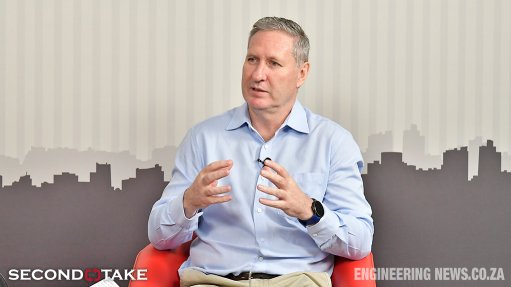Belated moves under way to halt slide in water infrastructure

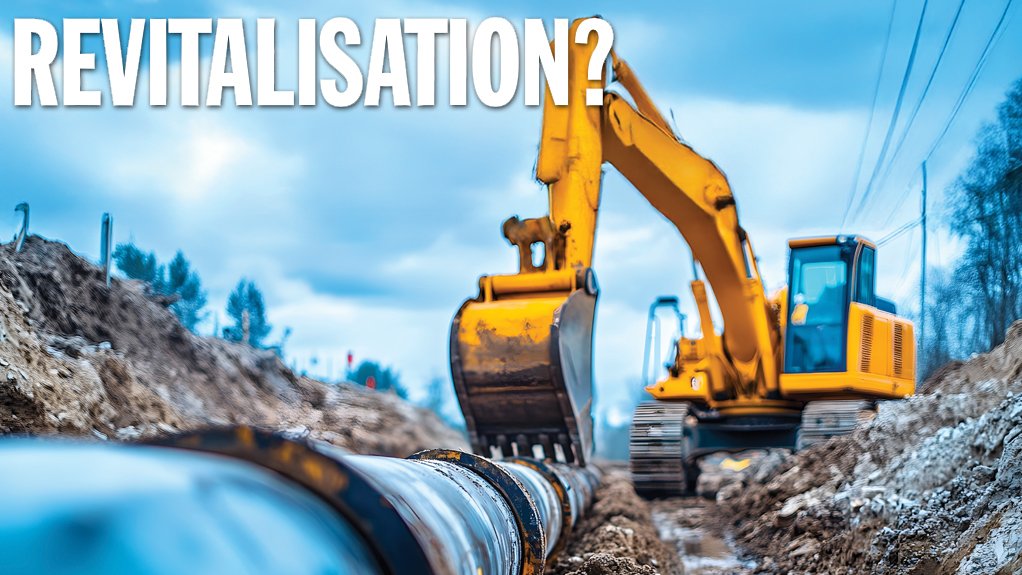
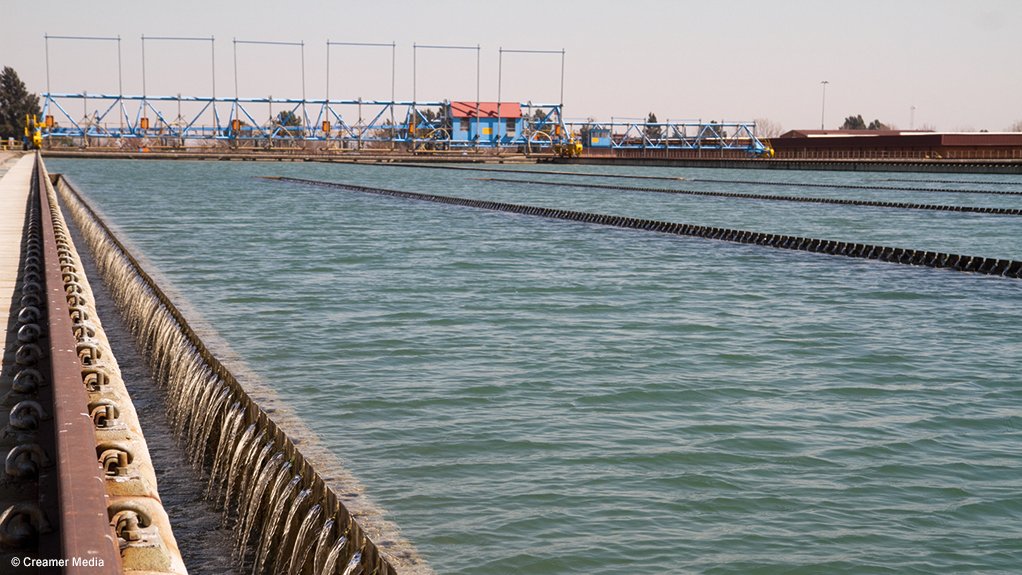
PUMPED UP Stakeholders have recognised the urgency of addressing water and sanitation infrastructure issues, and are undertaking initiatives to remedy this
Photo by Creamer Media
South Africa’s water and sanitation infrastructure (WSI) is in a poor state, and stakeholders recognise the urgent need to address this to prevent a supply crisis, with various partnership and regulatory initiatives being pursued to mitigate the situation.
This was highlighted by speakers during Creamer Media’s webinar, titled ‘Water: Fixing fragile infrastructure and building a water- secure future for all businesses and communities’, held last month.
Previous and ongoing government efforts to invest in infrastructure are not reflected in the outcomes, Water Institute of Southern Africa chairperson Dr Harrison Pienaar averred, also highlighting slow progress in initiating public–private partnership (PPPs).
He warned that the situation could deteriorate even further, owing to increasing urbanisation and rising demand in a water-scarce country, noting that it is imperative to expedite robust solutions, given the critical role of WSI in national health and socioeconomic development.
The Department of Water and Sanitation (DWS) recognised the need for change in the country’s water sector, and is undertaking considerable work to reform it. DWS water services deputy director-general Dr Risimati Mathye said the department was cognisant that it could not undertake projects alone and is, thus, also trying to attract private-sector investment.
Complex Environment
The country’s water sector is “complex”, with water services provision vested in municipalities that are grappling with capacity constraints, skills gaps and funding challenges.
The private sector has the capacity, expertise and funds to assist, but there is a lack of properly defined projects and mechanisms to execute this, DWS Water Partnership Office (WPO) head Johann Lubbe pointed out.
The WPO was established by the DWS to address this situation. It is a ringfenced national water and sanitation implementing office, responsible for delivering the National Water Programme (NWP), which aims to accelerate water and sanitation infrastructure delivery across South Africa, with the Development Bank of Southern Africa as the mandated implementing partner.
It also assists entities, including municipalities and water boards, in preparing and structuring bankable projects to attract private-sector investments.
The aim is to bring in structured models to facilitate private-sector support for municipalities to function better and provide improved services, and not to privatise water, Lubbe assured.
“The private sector has its role to play, but will not provide the entire solution,” he emphasised.
The private sector’s niche will likely be in smaller- to medium-sized projects, which can be rapidly deployed and manufactured, with local content and service provision support, said water treatment solutions company NuWater business development head James Morisse.
He highlighted the “novel approach” of educating stakeholders in the industry – from communities to government – about available and robust private-sector technologies that can be deployed quickly and provide water consistently. This, he suggested, will encourage their adoption as part of the final solutions.
Concurrent with other initiatives, reduced water use should also be pursued, Lubbe said.
Standardised Programmes
One of the WPO’s roles is to develop standardised programmes to create uniform documentation, models and approaches so that WSI projects can be executed efficiently and cost effectively.
The entity also assists in preparing projects, with a lack of bankable projects presenting a key challenge, Lubbe added.
The WPO supports municipalities in the preparatory work needed to bring projects to the bankable stage, thereby creating opportunities for the private sector to fund, operate and maintain these projects for longer-term municipal support.
The first of the WPO’s six standardised programmes is a nonrevenue-water programme, designed to assist municipalities in reducing physical losses and over-consumption, and improving cost recovery.
A performance-based contract model is being pursued in this regard, where the private sector will provide funding and assume responsibility for reaching agreed targets through a revenue-sharing mechanism with municipalities.
The second programme – water reuse – entails upgrading and refurbishing municipal wastewater treatment facilities, with the additional advanced treatment of water enabling its resale for potable, industrial or agricultural use. The option of beneficiating the sludge and generating energy from these facilities is also being explored.
The third programme, wastewater retreatment, focuses on assisting municipalities in upgrading, refurbishing and rehabilitating wastewater treatment plants, as many such plants are failing across the country.
The non-sewered water sanitation programme, meanwhile, aims to roll out new offgrid or water-efficient sanitation technologies, and deploy them in informal settlements, schools or developments that are constrained in terms of centralised treatment facilities.
Under the seawater desalination programme, large volumes of desalinated seawater will be procured for coastal cities.
The sixth programme comprises management contracts, where the private sector provides management support for water and sanitation functions – including engineering and non-engineering functions – in municipalities.
The WPO is working on several priority projects within the nonrevenue water and reuse spaces, Lubbe said.
Regulatory Reforms
The National Treasury is undertaking several metro trading services reforms, with a key element being the ringfencing of water revenue, Lubbe highlighted.
Although water revenue is allocated to municipalities, it is often used for other services and does not “flow back” into water infrastructure, resulting in the current state of deterioration, poor maintenance and operation of infrastructure, he said.
Ringfencing will ensure that revenue is used for water infrastructure and is also expected to create a less risky environment for the private sector to participate in financing water projects in the municipal space, Lubbe said.
Mathye indicated that the department is amending the Water Services Act, separating the powers between the water service authority (WSA) and water service provider (WSP).
Consequently, when a WSA or municipality fails to execute its function, it will lose its licence and will have to appoint a WSP until its system is restored to the required standard before it can re-obtain its licence.
This process is at an advanced stage, Mathye said.
Mining Partnerships
The mining industry was highlighted as an example of successful WSI PPPs.
The industry has a “contradictory role” to play in the water sector as a consumer, impactor and sometimes provider, Minerals Council South Africa environment, health, legacies and employee relations senior executive Nikisi Lesufi averred.
In certain areas, mining actually allows for infrastructure projects to be operationalised, he said, underscoring the industry’s important role in protecting water resources and future-proofing supply for critical areas of the economy.
There are several newer mining developments in the water-stressed Northern Cape and Limpopo provinces where there are insufficient delivery systems to meet the water demand of mining operations. As a result, mining companies need to partner with government to develop water infrastructure projects.
Two key projects exemplify this, with one being the Lebalelo Water User Association Olifants Management Model Programme, which aims to fast-track the construction of bulk and potable water infrastructure to supply targeted communities and commercial water users in the Sekhukhune district municipality and Mogalakwena local municipality.
Platinum mines partnered with government to roll out sustainable water supply to communities and mines in the area, and the programme is also considering using the water for renewable-energy generation, Lesufi informed.
Further, through the Vaal Gamagara project, in the Northern Cape, government, the water board and the Minerals Council are working on an initiative to bring water to the province, he added.
Lesufi highlighted that all stakeholders are participating in the decision-making process to provide sustainable water supply for the area.
“These two projects demonstrate that . . . mining can actually be an opportunity to bring water to the area and . . . the communities, [and] in meeting the water demands of the mining industry you can simultaneously meet the water demands of the communities and the other industrial sectors in the area,” asserted Lesufi, who added that it is important to identify workable models to undertake this efficiently.
Comments
Press Office
Announcements
What's On
Subscribe to improve your user experience...
Option 1 (equivalent of R125 a month):
Receive a weekly copy of Creamer Media's Engineering News & Mining Weekly magazine
(print copy for those in South Africa and e-magazine for those outside of South Africa)
Receive daily email newsletters
Access to full search results
Access archive of magazine back copies
Access to Projects in Progress
Access to ONE Research Report of your choice in PDF format
Option 2 (equivalent of R375 a month):
All benefits from Option 1
PLUS
Access to Creamer Media's Research Channel Africa for ALL Research Reports, in PDF format, on various industrial and mining sectors
including Electricity; Water; Energy Transition; Hydrogen; Roads, Rail and Ports; Coal; Gold; Platinum; Battery Metals; etc.
Already a subscriber?
Forgotten your password?
Receive weekly copy of Creamer Media's Engineering News & Mining Weekly magazine (print copy for those in South Africa and e-magazine for those outside of South Africa)
➕
Recieve daily email newsletters
➕
Access to full search results
➕
Access archive of magazine back copies
➕
Access to Projects in Progress
➕
Access to ONE Research Report of your choice in PDF format
RESEARCH CHANNEL AFRICA
R4500 (equivalent of R375 a month)
SUBSCRIBEAll benefits from Option 1
➕
Access to Creamer Media's Research Channel Africa for ALL Research Reports on various industrial and mining sectors, in PDF format, including on:
Electricity
➕
Water
➕
Energy Transition
➕
Hydrogen
➕
Roads, Rail and Ports
➕
Coal
➕
Gold
➕
Platinum
➕
Battery Metals
➕
etc.
Receive all benefits from Option 1 or Option 2 delivered to numerous people at your company
➕
Multiple User names and Passwords for simultaneous log-ins
➕
Intranet integration access to all in your organisation








